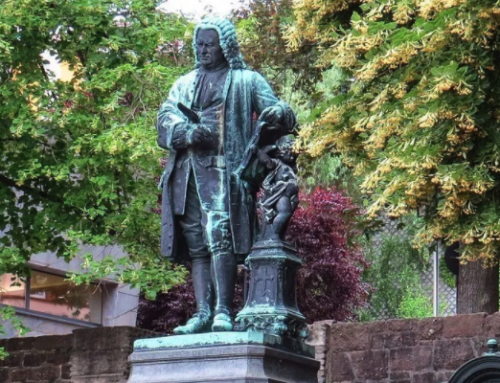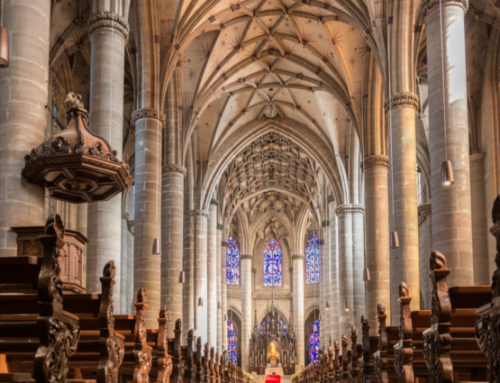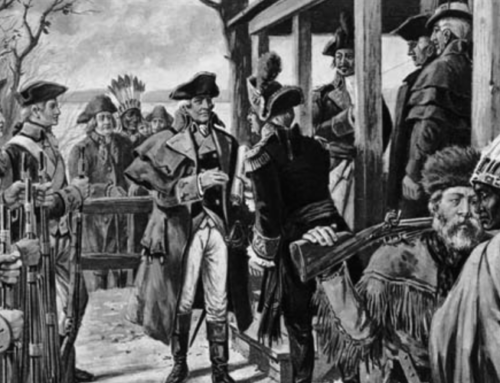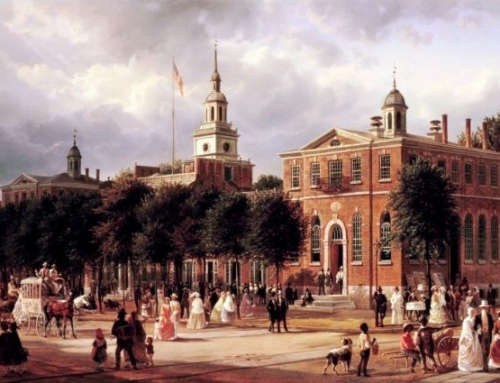 I am spending much of the summer teaching in Iceland. It is an interesting country for many reasons, not least the fact that it has the oldest still-active legislature in the world. A group of us took a tour that included a visit to the site of the original Althing and the probable site of the law rock. The Althing was, in essence, Iceland´s national parliament from 930 until 1262, when Iceland allowed the Norwegian king to take over executive functions. This is an interesting story, but a long one—think Game of Thrones, minus some of the gratuitous violence, and most of the gratuitous sex and nihilistic stupidity. Even after that, Iceland continued to hold regular sessions of the Althing until 1799; somewhat fitful for decades thereafter, Althing meetings came to govern the sovereign state of Iceland on its independence in 1944.
I am spending much of the summer teaching in Iceland. It is an interesting country for many reasons, not least the fact that it has the oldest still-active legislature in the world. A group of us took a tour that included a visit to the site of the original Althing and the probable site of the law rock. The Althing was, in essence, Iceland´s national parliament from 930 until 1262, when Iceland allowed the Norwegian king to take over executive functions. This is an interesting story, but a long one—think Game of Thrones, minus some of the gratuitous violence, and most of the gratuitous sex and nihilistic stupidity. Even after that, Iceland continued to hold regular sessions of the Althing until 1799; somewhat fitful for decades thereafter, Althing meetings came to govern the sovereign state of Iceland on its independence in 1944.
Seeing the law rock, from which the law speaker would recite the laws and the procedures for the ensuing Althing, and especially viewing the area from that high place, brought home to me the nature of government in the age of the sagas. Iceland was not a terribly civilized place at this time, certainly not by contemporary or Christian standards. Bravery was the highest virtue and death in battle the only way to Valhalla. Law itself was a tenuous thing, more aimed at keeping the peace among warlike clans than establishing justice and fairness for everyone in all things as contemporary people seem to think it should be. Indeed, in early Iceland one can see law and government reduced to their essential, fundamental elements. It is a bracing experience.
The centerpiece of government in Iceland was weregild. The payment owed by one who kills another without proper cause to the family of the one killed was central to justice and public peace. It also was central to government. There being no national police force, let alone a national spying apparatus to keep tabs on everyone´s activities or an administrative state to make certain no one refused to bake cakes or take photographs for the wrong reasons, law enforcement was largely a private affair. Such laws as were passed generally aimed at authorizing someone to take action that might result in bloodshed, which meant, in essence, that the law provided immunity from having to pay the weregild.
 The Althing itself was a kind of combination parliament, courtroom, and festival. The law rock overlooks a valley in which sits a lake the Icelanders formed by diverting a river several miles off course to see that the chieftains, freemen (all of whom had a vote), families, retainers, slaves, and various merchants and artisans could have water to drink and, well, various facilities in their primitive impurity. Laws were passed, cases were brought, and disputes were settled, at times by the sword. Drownings and beheadings were part of justice, such as it was, and the emphasis was on preventing and ending blood feuds.
The Althing itself was a kind of combination parliament, courtroom, and festival. The law rock overlooks a valley in which sits a lake the Icelanders formed by diverting a river several miles off course to see that the chieftains, freemen (all of whom had a vote), families, retainers, slaves, and various merchants and artisans could have water to drink and, well, various facilities in their primitive impurity. Laws were passed, cases were brought, and disputes were settled, at times by the sword. Drownings and beheadings were part of justice, such as it was, and the emphasis was on preventing and ending blood feuds.
Some might say such a government would be fit only for a primitive people in a small, primitive society. Today we care more about our people, about justice, and about using the state to make our society a better, safer, more healthful, and more equal place to live. The early pagans (unlike today´s post-Christians) did not care as much as we do about such higher goods and so could not be expected to form a more just government. After all, Icelandic society was one ruled by marauding men of Nordic extraction who stole the majority of their women from their Celtic homelands and held them and most of the population as slaves, so what would they know about good government? Iceland itself certainly has left behind its old vision of the state as little more than a means of keeping the peace among potentially hostile clans. It is a social democracy, which uses high taxes to provide public benefits in education, social welfare, and the like, eschewing a substantial military while drafting its youth into various public service projects such as planting trees.
With all due respect to today´s Icelanders, who do seem to maintain a very orderly republic, perhaps we ought to reconsider the virtues of a rough-and-ready state that managed to keep the peace in a very rough land, among a very rough people. Americans having rejected their Christian heritage, or having accepted the Supreme Court´s rejection on their behalf, it is irrational to think that social institutions will now keep the peace. In Iceland the peace is kept because it is a very small society of 320,000 people that overwhelmingly shares a common background and culture. To name your child is to encounter the state as it checks to make certain it is in keeping with the Icelandic way. To attempt to build a Greek Orthodox Church in Reykjavik, the capital, is to encounter open hostility to one´s traditional architectural forms. The tradition of public baths (communal pools and “hot pots” frequented by most everyone) maintains an ethos of living (and showering) together. And, as I have been reminded more than once since landing in Iceland, this people threw several of their crooked bankers in jail, whereas both political parties in the United States chose to put the interests of the financial class above those of the people in general and of the rule of law in particular. This was possible in Iceland in large measure because of the small size of the nation. The miscreants were known personally by an appreciable percentage of the population and a few news stories were capable of galvanizing public anger with the spectacle of greed and fraud. In the United States, such spectacles are drowned in a sea of local and national diversions.
The United States does not have Iceland´s means of maintaining community and order. Some may wish the state to move us further in this direction, but such hardly seems likely in our more individualistic culture without outright violence. Instead, we continue to experience increased hostilities among groups vying for government recognition and largesse. Whether your typical American would like to live in Iceland or even some more ordered Scandinavian society is beside the point. We are not Iceland, let alone Denmark, which some Icelanders mock for its maniacal insistence on regulating the minute details of personal conduct.
Given the diversity so many Americans claim to value, then, perhaps we should reconsider a smaller, tougher state that concentrates on doing its fundamental job of keeping the peace and leaves us alone in our own groups to lead the lives we choose. I have no illusions that this is likely to occur in our regime´s headlong drive to imitate the worst of Europe. But I mention it as a point worth considering.
Books on the topic of this essay may be found in The Imaginative Conservative Bookstore.








Leave A Comment